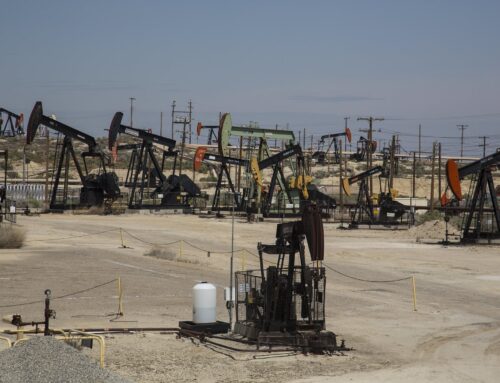Senate Energy Committee’s Hearing on the President’s
FY2012 Budget Request
Earlier this week the President released his budget request for fiscal year 2012. This multi-thousand page document includes the Administration’s proposed government spending levels for fiscal year 2012. This week it’s been dominating the attention of Congress. The House and Senate have held more than a dozen hearings, grilling a bevy of Obama administration officials on the intricacies of the budget. On January 16, the Senate Energy and Natural Resources Committee spent more than two hours asking Secretary of Energy Steven Chu about the Department of Energy’s (DOE) section of the budget.
Chairman of the Committee Senator Bingaman (D-NV) asked Sec. Chu to discuss in depth the “innovation hubs” that the budget funds. Sec. Chu explained that, in the past, grants made by the Department of Energy (DOE) have been very specific, funding a few researchers to work on a specific technology. But bringing new technologies together can be just as challenging and these “innovation hubs” will be designed around looking “across the whole board” to get an integrated system of new technologies. Ranking Member Murkowski (R-AK) was critical of a provision in the budget which would sell $550 million of the country’s strategic petroleum reserve. Sec. Chu explained that the reason for the sale was because of an issue with one of the reservoirs. To fix the damaged reservoir requires selling some petroleum, a move the Secretary assured the committee would be temporary. The government is required to have at least 75 days worth of emergency oil, and this move would only decrease that capacity by one day.
A number of Senators asked about the DOE’s loan guarantee program created in the 2005 Energy Bill. Sen. Portman (R-OH) was specifically worried about nuclear loan guarantees and how the credit subsidy cost, the fee nuclear companies have to pay to get a loan guarantee, is determined. He argued that national security should be considered in the cost. Sec. Chu noted that he couldn’t comment on specific loan guarantees and that the Office of Management and Budget worked on the specific credit subsidy costs anyway, but said that the DOE is working hard to make sure that important projects were getting funded through the program. Sec. Chu said that because the private sector wouldn’t finance some things like nuclear plants or clean coal technologies, the DOE needed to do so. Sens. Franken (D-MN) and Risch (R-ID) also spoke positively of different parts of the loan guarantee program, while Sen. Coons (D-DE) pointed about the potential of loan guarantees and offshore wind farms.
Many Senators also asked about a clean energy standard (CES) and the discrepancy in funding between some different forms of energy technology in the budget. Ranking Member Murkowski noticed that hydropower was cut by 20%, nuclear funding decreased slightly, and funding for natural gas was zeroed out. Sen. Hoeven (R-ND) charged generally that the budget was “picking winners and losers” when it came to different kinds of energy, and Sen. Manchin thought that the budget should have provided more “directi.png” for coal-to-liquids. Sec. Chu explained that the budget moved away from supporting mature technologies and industries that didn’t need the help to be competitive. That is why the budget seeks to cut subsidies to coal and oil and gas companies. On the other hand, many renewable technologies and some clean coal technologies were still included.
TCS has been critical of many of the DOE's programs and the President's budget. We support the move away from subsidies for mature industries but the budget continues to reward the long-established coal and nuclear industries.










